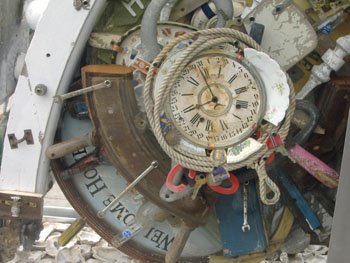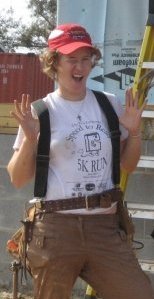One of the neighborhoods in our city is called The Point. Located on the tip of a peninsula, The Point is the epicenter of the fishing, oyster & shrimping industries, which since the early part of last century have been dominated by immigrant communities. From the 1880s through the 1970s, it was European immigrants, particularly French and Croatian; although large portions of these communities lived in such poverty that in the 1920s they inspired the creation of the outreach mission I worked for last year, names like Desportes, Reynoir, Gollott, & Gillich now grace street signs, seafood warehouses, and mayoral campaigns all over the city.
The next wave of immigrants arrived in the early 1980s. Vietnamese refugees, "boat people" resettled after the Vietnam war, settled on The Point, taking to the shrimp boats like fish in water (sorry, couldn't resist). Two decades later, these once-feared and ostracized "aliens" have become an integral part of our city's diverse community, running grocery & convenience stores, operating restaurants, and managing whole shrimping fleets. Hurricane relief and solidarity organizations geared towards the Vietnamese community have sprung up since Katrina, and many, though not all, businesses have reopened (among them my very favorite sandwich shop down here, Le Bakery, which makes scrumptious tofu-carrot-cuke-daikon po boys from French bread truly worthy of the name). These days it's not uncommon to drive through The Point and spot a Vietnamese lady unconcernedly hard at work in an expansive garden, sheltered from the sun by a conical rice paddy hat.
The Vietnamese Buddhist temple...

...cheek to jowl with the Vietnamese Catholic church:

Where I get my spring roll paper and my soy bean pudding:

Mmmmmmmmmmmm:

The resilience of these communities and the way they have been gradually, but in the end wholly, embraced by those who've come before give me hope for the current influx of Latin American immigrants who are working hard to take care of their families and contribute to society, just like my ancestors, and yours, did. Latin restaurants, tiendas, and worship services are already thriving; maybe one day some of the clients with whom I work or the friends with whom I attend mass will feel comfortable working their own gardens in broad daylight, free of fear and welcome members in the community.




